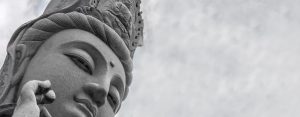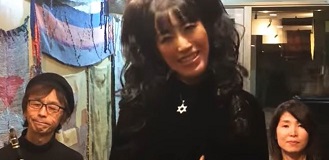When the Ancients let down a hook, it was never an empty manoeuvre; they invariably had some truth to benefit people. Commentary on “Ts’ui Yen’s Eyebrows”, Hekiganroku https://terebess.hu/zen/Blue-Cliff.pdf
Category: zen
Kwan Seum Bosal Chanting Part Three: Eliminating Karmic Obstacles
Introduction So, let’s talk about bad karma. Bodhidharma (the founding teacher of Zen in China) taught that When those who search for the Path encounter adversity, they should think to themselves, “In countless ages gone by, I’ve turned from the essential to the trivial and wandered through all manner of existence, often angry without cause […]
Kwan Seum Bosal Chanting Part Two: Reciting the Name of the Bodhisattva
Introduction As the name implies, the core of “Kwan Seum Bosal Chanting” is the actual chanting of the name of the Bodhisattva of Compassion (Kwan Seum Bosal) over and over again. As a general rule, “Kwan Seum Bosal” should be repeated at least 108 times. The practice of reciting the names of various Buddhas and […]
Kwan Seum Bosal Chanting Part One: Homage / Prostrations
NOTE: This is the first of several posts on Kwan Seum Bosal Chanting. Links to all the other posts are at the bottom of this post (in the section on “Sources and Resources”) Introduction Kwanseum Bosal Chanting is a practice that comes from the Korean Buddhist tradition. I don’t know of any closely similar practices […]
Getting Hold of the Ox
竭盡神通獲得渠 心強力壯卒難除
竭 jié exhaust; use up
盡 jìn end; finish; use up
竭盡 exhausted
神 divine
通 tōng pass through; expert; know well
神通 = Abhijñā (अभिज्ञा) direct knowledge; higher knowledge
“A cave and a grave are not two.”
心生故種種法生, 心滅故龕墳不二 “Because of the arising of thought, various phenomena arise; when thought ceases, a cave and a grave are not two.” Master Wonhyo 心 mind, thought 生 born 故 (gù) cause, reason 種種 (zhǒng zhǒng) all kinds of 法 dharma, thing 生 born 心 mind, thought 滅 (miè) destroy, extinguish 故 cause, reason 龕 […]
大悲咒 (Great Compassionate Mantra)
大悲咒 (Great Compassionate Mantra). This is one of the most popular mantras among present-day Buddhists. It is not to be confused with the longer mantra that is also often referred to as 大悲咒, and in English is often simply called “The Great Dharani”. That longer mantra is also known as “The Nilakantha Dharani”, but the […]
“Do not pass your days and nights in vain.”
In Chinese, the two character combination 光陰 (guāng-yīn) literally means “light-dark”. But the intended sense is like that in the English phrase “day in, day out”. Or even like that in the song “Sunrise, Sunset”. This phrase occurs in the ancient poem called “The Harmony of Difference and Sameness” (aka The Sandokai), in the line: […]
The Four Great Vows (四弘誓願)
The teachings are infinite; we vow to learn them all.
法門無量誓願學
法門 Pinyin: fǎ-mén. Meaning (literal): Dharma gate. Composition: 法 + 門 (“Dharma” + “gate”)
無量 Pinyin: wú-liàng. Meaning: immeasurable. Composition: 無量 (“no” + “measure”)
學 Pinyin: xué. Meaning: learn
菩薩: Chinese for “Bodhisattva”
The Chinese name of Avalokiteshvara, as we saw in the previous post, is 觀自在. But the Chinese title of Avalokiteshvara is the next two words on the second line of the Heart Sutra: 菩薩. Here is the whole second line, with these two characters in red: 觀 自 在 菩 薩 行 深 般 若 […]







